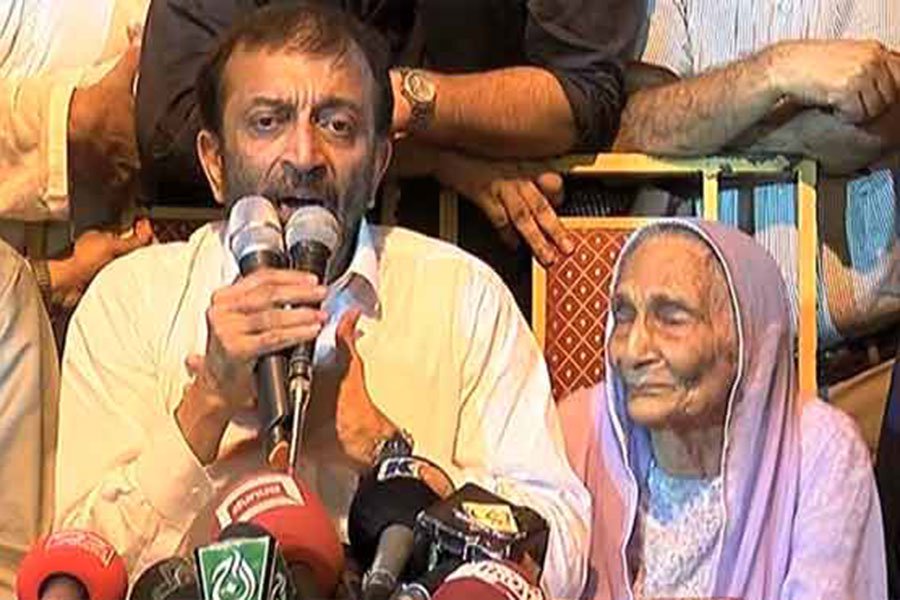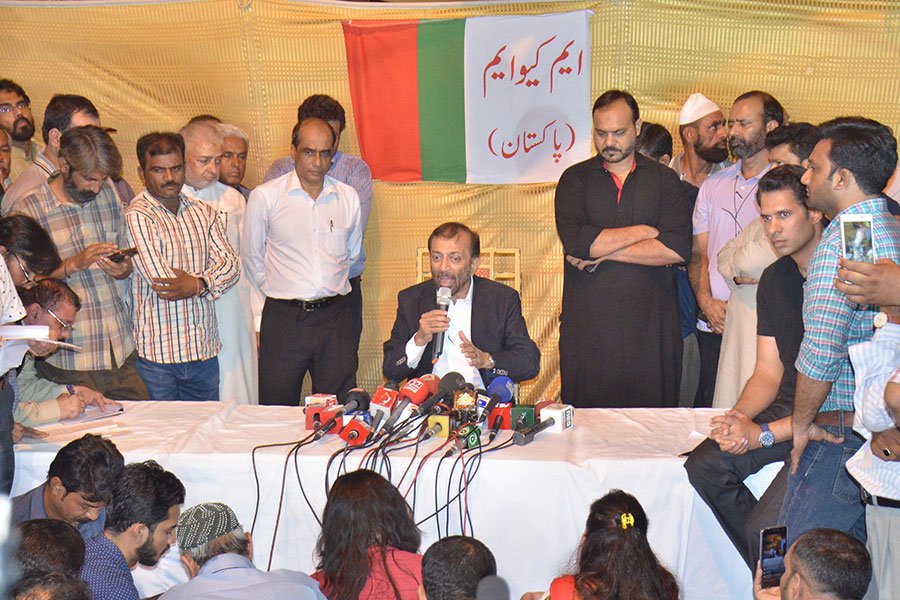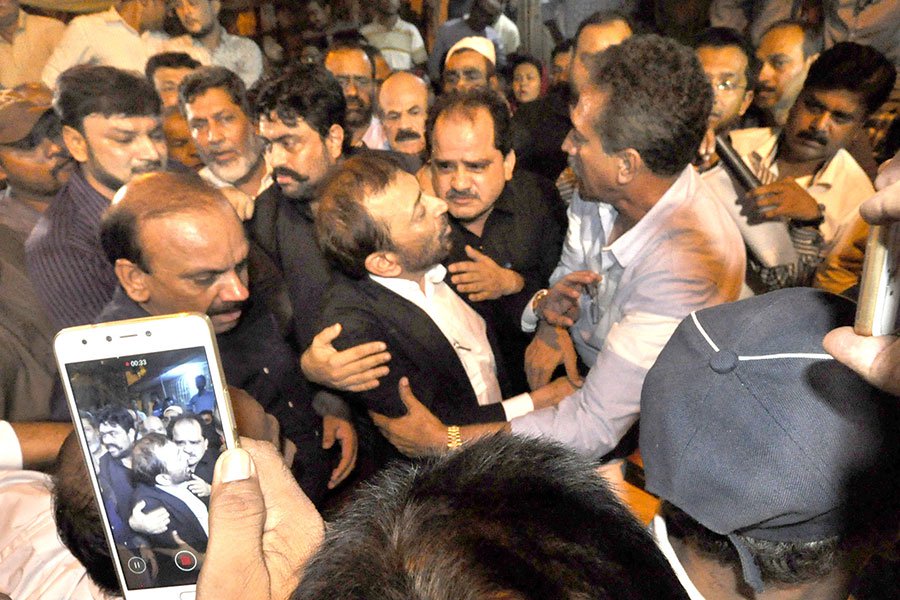For more than a year, after separating from Muttahida Qaumi Movement that was being run from London, the MQM-Pakistan kept its head down and out of controversies, shunning confrontational politics.
But that is now changing.
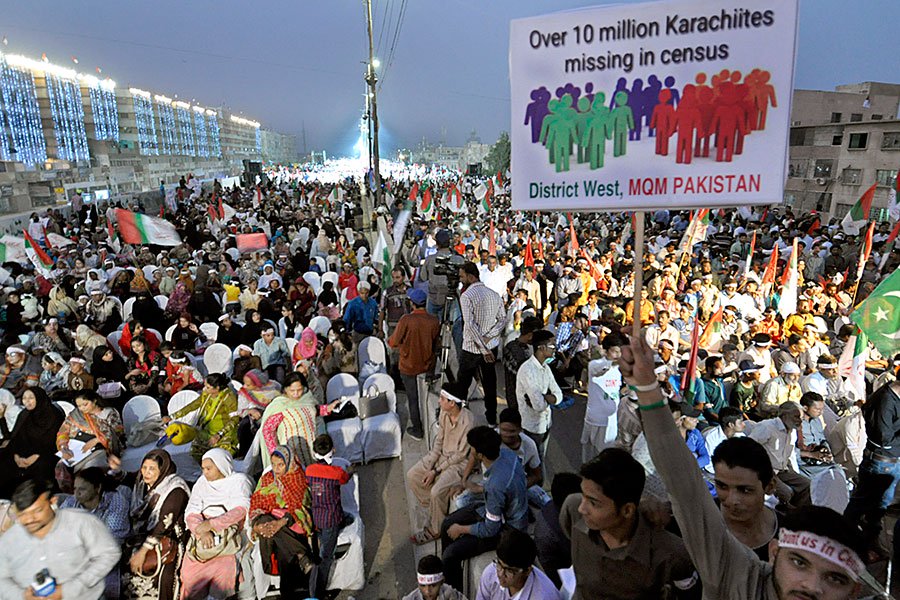
On November 5, the MQM-P organized a large rally in Karachi to reject the preliminary results of the sixth population census that put the city’s headcount at 14.9 million. Farooq Sattar, the party chief, accused state authorities of “manipulating the results” deliberately to ensure “pre-poll rigging”. The bluster was premeditated, as it came on the heels of a serious blow to the party’s ranks. In October, the MQM-P lost several political strongmen, including Arshad Vohra, a former deputy mayor of Karachi, and Nasir Jamal, a former deputy convener, amongst others, to another breakaway faction of the MQM – the Pakistan Sarzameen Party founded by Mustafa Kamal.
Sattar’s party, it seemed, was no longer afraid to pursue aggressive politics, in order to keep the new party afloat before next year’s general elections.
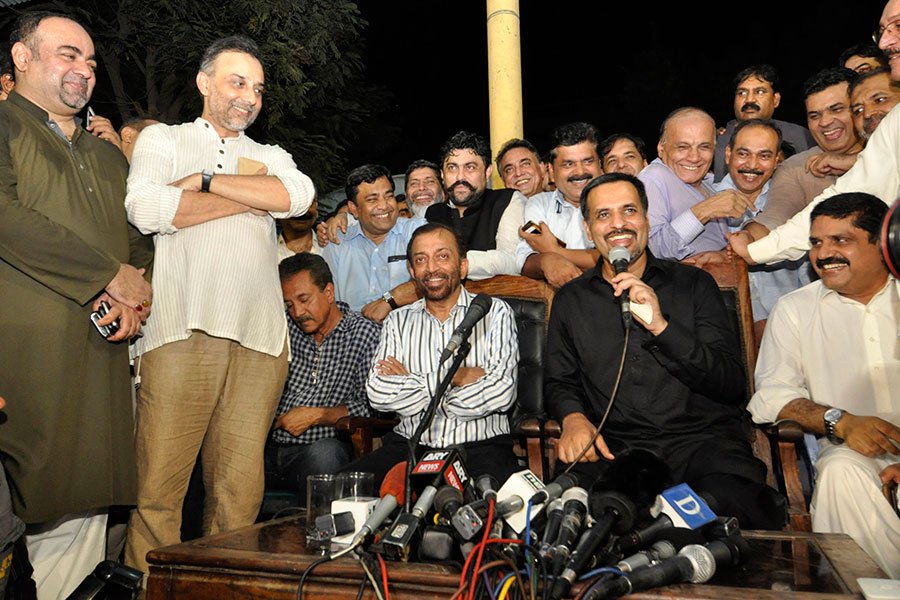
But then, something confusing happened. On November 8, Sattar formed an alliance with Kamal. The two, who had till now been taking pot shots at each other, held a joint press conference and bear hugged for the cameras to capture. Backstage, the MQM-P workers and supporters were taken aback. A pitch of angry voices began to rise just as the press briefing ended. That night, the Rabita Committee, the party’s politburo, realized that the alliance had not gone down well with core supporters and quickly set about for a course correction.
The next day, a demoralized Sattar announced to quit politics. But in typical MQM-style, party workers coaxed and protested. Full-throated calls insisted “Bhai” (now Sattar) to reconsider. All this while the cameras continued to roll. Eventually, the ex-mayor of Karachi yielded. He was back in the saddle, and this time stronger than ever.
For onlookers, November seems to have been a turbulent week for the MQM-P struggling to establish itself as a separate entity. But for party leaders, Sattar’s dramatic and lengthy press conference was the need of the hour, to iron out the emerging differences in their ranks. “MQM is the voice of the Muhajirs; it was the voice before August 22 and will remain so after,” Sattar announced.
By using the Muhajir-card, Farooq Sattar emerged from the shadows of the MQM's founder as a leader – his own man, not someone’s loyal placeman. This was crucial. As for a year now, workers were having a hard time convincing voters that MQM-P could survive outside of Hussain’s mighty grip.
“After the press gathering, the general vibe in the party is much better,” says an MQM-P member, who asked not to be named, “The workers wanted someone to take a stand, to say enough is enough, and Sattar did just that.”
Syed Aminul Haque, the party spokesperson, agrees that the media talk helped the leader reconnect with their support base. “We are all set to battle the 2018 parliamentary elections,” Haque tells Geo.tv, “We are very confident after our successful Nov.5 rally.”
With that, it seems to be back to confrontational politics for the MQM-P. These days it is pressurizing the Election Commission of Pakistan to de-seat the defectors who left for the PSP and to conduct by-polls in the constituencies, which are populated by Muhajirs. “By-elections on these seats will show that the MQM-P is a still representative of the Muhajir populace,” Haque adds enthusiastically.
Yet, winning is not a sure shot. The MQM-P’s strongest rival is the PSP. While a majority of the PSP’s leaders were formerly with the MQM, Kamal insists his party does not represent one ethnicity alone.
Kamal’s words, says Shabbir Qureshi, who has been voting for the MQM since it was formed in the 80s, hurt the Muhajirs. “We need mature and serious leaders,” he says, “In this multi-ethnic city, our identity protects our rights. The PSP has been attacking our identity. It has been hurting the community.” For Qureshi, the choice is clear. The only party that represents him and his community is Sattar’s Muttahida Quami Movement- Pakistan.



